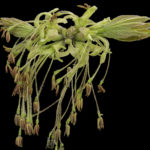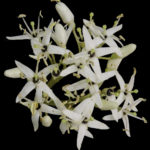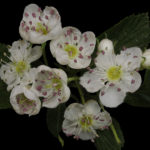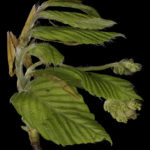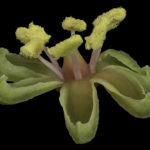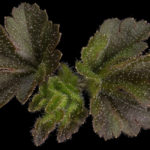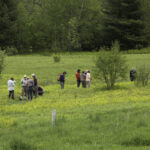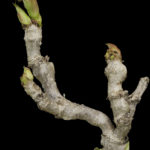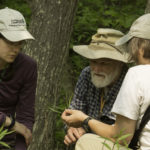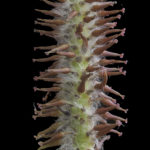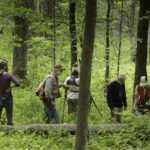Woody Plants in the Field: Ecology & Identification, With a Focus on Wetlands and Ledges
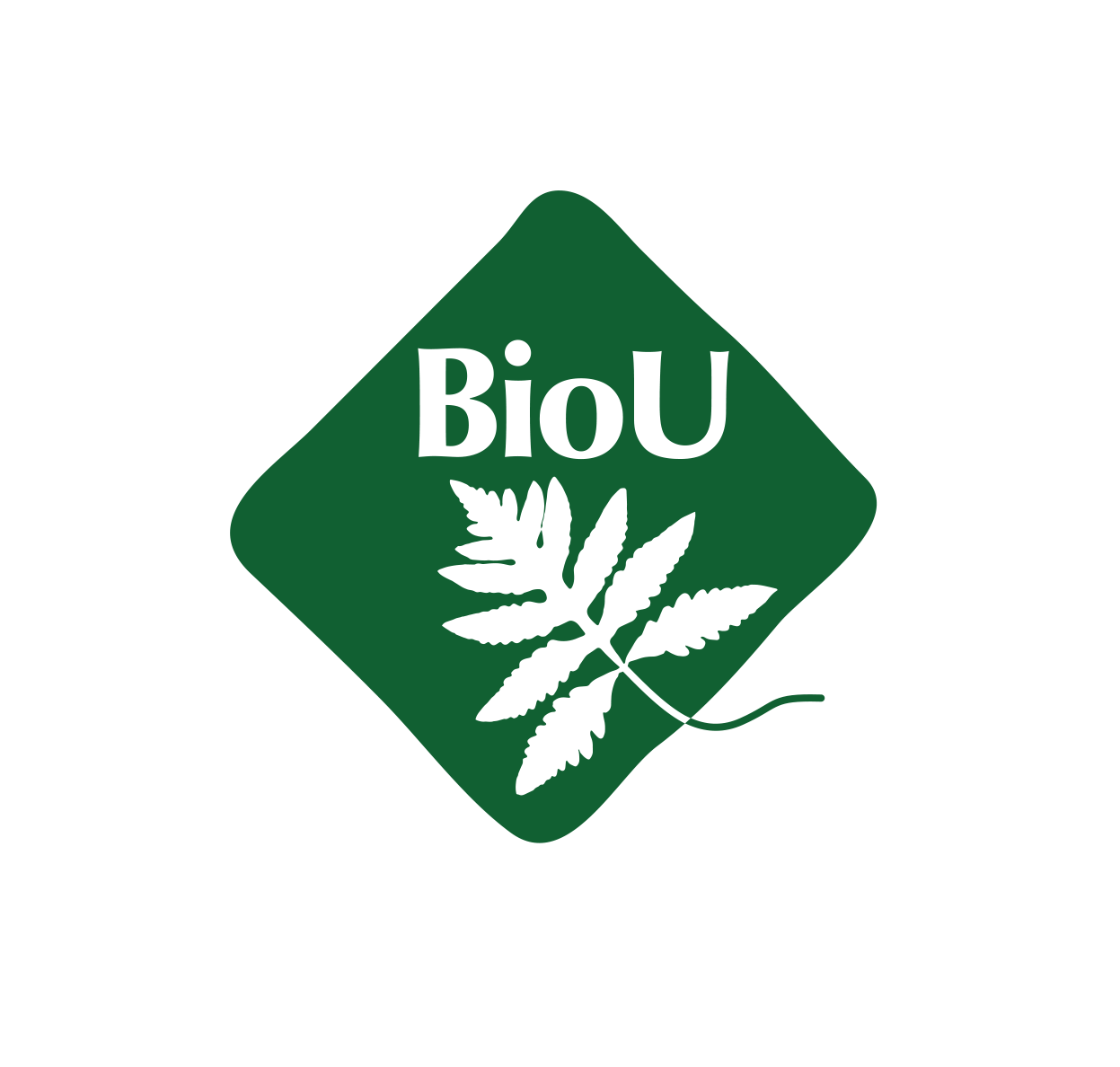
Instructors: Grace Glynn, Brett Engstrom, & Jerry Jenkins
June 1 - 2, 2024 | $285
Course size: 12 students
Financial support available (contact us)
A Northern Forest Atlas field course
W
oody plants—trees, shrubs, vines, creepers—are, to us, the key to understanding habitats, ecological patterns, and plant geography. This is an introductory course covering about 40 common species: how they grow, leaf, flower, and fruit; how to distinguish them and their habitats in the field; and how to use the Northern Forest Atlas photographic guide and digital Atlas to confirm them. In addition to some time at NBNC, we will visit a floodplain site to look especially at willows, a dry rocky woods site –ledges–, and finally a wetland with a diverse group of shrubs.
These two-day Northern Forest Atlas courses are systematic introductions to single plant groups—looking at and looking up plants, we say. We teach you how to describe and draw plants in the field, examine them in the lab, guess identifications by habitat, look them up in our books, and confirm identifications with diagnoses. We use the Atlas photo-guides, digital atlases, and whatever other reference sources we have at the time.
We teach a three-step method of field identification, called filter, guess, and confirm, that emphasizes salient characters and ecological constraints. When this is not enough, we will follow up with comparative work in the lab.
We will emphasize practical field methods and problem solving. We do a little demonstrating and lecturing—old habits die hard—but not much. We prepare you to go out in the field, show you what you need to do there, and then turn you loose to do it. We spend a lot of time finding, observing, characterizing, diagnosing, and discussing; we spend comparatively little with books, and almost none with slides and keys. They have their place, but are not how we like to start.
About the Instructor(s)
Grace Glynn is the State Botanist with the Vermont Department of Fish & Wildlife, where she works to map, monitor, and conserve Vermont’s approximately 600 rare and uncommon plant species. She holds a Master’s Degree from the Field Naturalist Program at the University of Vermont and a B.S. in Botany from Connecticut College. Grace has taught field ecology for the Vermont Master Naturalist Program, the Vermont Law School, and the University of Vermont. She lives on a kame terrace in central Vermont, where she’s cultivating a miniature sandplain grassland in her backyard.
Jerry Jenkins, from White Creek, New York, was trained in philosophy and mathematics, and has done botanical work 55 years. He has free-lanced in botany and ecology, worked as a researcher for the Wildlife Conservation Society, and currently produces books and imagery for the Northern Forest Atlas Project. He has written books on Vermont geography, acid rain, climate change, conservation easements, Adirondack geography, and four photographic guides (Woody Plants, Sedges, Mosses, and Grasses) and accompanying digital atlases for the Atlas Project. We will use the guides and digital atlas in the course. He is currently working on a full-length field guide to woody plants and a book on ecological patterns.
Brett Engstrom is a field naturalist living on Drew Mountain at the northern end of the Granite Hills of Vermont. For over 30 years he has worked, and continues to work, as a freelance botanist & ecologist throughout New England and upstate New York. The bulk of his work centers on ecological inventories and natural community mapping for public agencies, conservation organizations, and private individuals and businesses. He has assisted Jerry in work on the Northern Forest Atlas Project’s Woody Plants and Sedges, and is co-author with Jerry for the Grasses of the Northern Forest.
Physical Requirements
Participants must be able to walk up to 2 miles over the course of each day off trail over uneven and potentially muddy terrain. Participants should be comfortable outside in potentially hot, muggy, wet, and/or buggy conditions for long periods of time. Participants must be comfortable climbing over, under, and through debris in the forest. Please reach out to us if you have any questions about mobility and/or other accessibility needs.
Recommended Reading
Meals
We will provide coffee, tea, and light breakfast fare (pastries, etc.) at NBNC. Participants should bring their own lunches and snacks.
Timing
Course begins 9 AM on Saturday at North Branch Nature Center. Course begins on Sunday at a time of the instructors' choosing. Course concludes by 5 PM on Sunday.
Academic Credit / Professional Development
This course may qualify for 1 graduate-level credits for an additional $200 course fee. All BioU courses are accredited by Castleton University. Participants interested in receiving credit must contact us at least 2 months in advance so we have time to arrange course accreditation.
It is the student’s responsibility to ensure that home institutions will accept the credit. Participants pursuing academic credit will be required to complete an additional assignment above and beyond the course hours, including literature review, reflective writing, or a field-based project.
This course qualifies for 20 hours of professional development hours and continuing education units. Certificates of completion are provided at the conclusion of the course.
Cancellation Policy
While we realize that unexpected circumstances arise that are out of our control, North Branch Nature Center cannot guarantee refunds for registrations cancelled within 30 days of the course. If a cancellation occurs within this window, NBNC will attempt to fill the space from our wait list and provide a full refund. If the course needs to be cancelled by NBNC, we will provide a full refund.
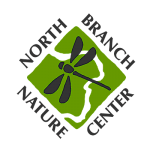
713 Elm Street
Montpelier, Vermont 05602
(802) 229-6206
Hours: Center Open Monday-Friday 9-4
Trails Open 24/7

